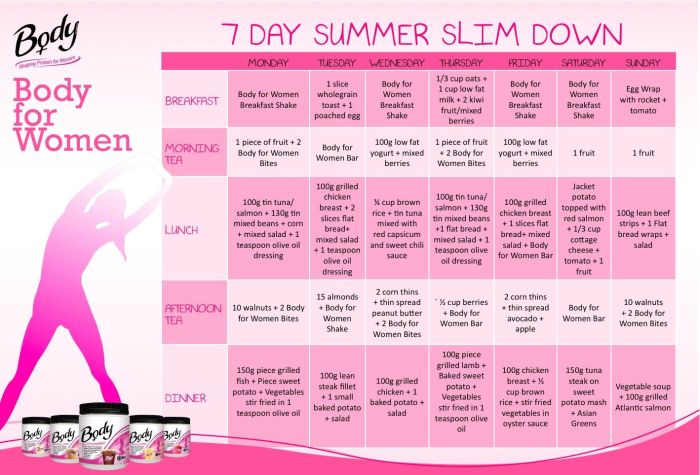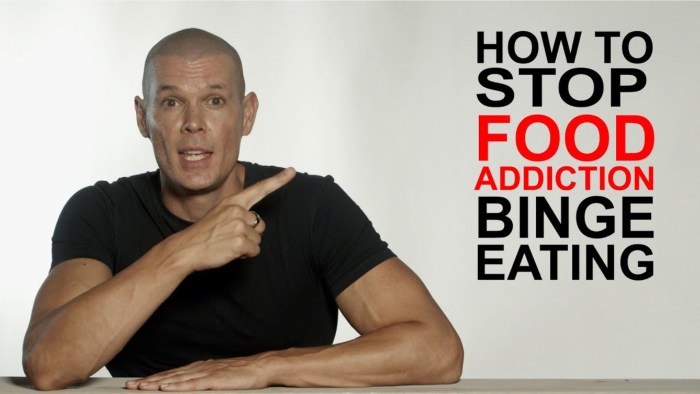
Embarking on a weight loss journey after 40 can be both challenging and rewarding. As women age, their bodies undergo changes that can impact weight loss efforts. In this guide, we will explore the best strategies for women over 40 to achieve their weight loss goals through tailored nutrition, effective exercise routines, lifestyle changes, and medical considerations. Let’s dive in!
Understanding Weight Loss for Women Over 40
After the age of 40, women experience several physiological changes that can impact their weight loss journey. Hormonal fluctuations, decreased muscle mass, and a slower metabolism are common factors that contribute to weight gain in this age group.
Physiological Changes
- Hormonal fluctuations: As women enter perimenopause and menopause, estrogen levels decrease, leading to weight gain, especially around the abdomen.
- Decreased muscle mass: With age, women tend to lose muscle mass, which can slow down metabolism and make it harder to burn calories.
- Slower metabolism: The metabolic rate naturally decreases with age, making it more challenging to maintain or lose weight.
Importance of a Tailored Approach
- One-size-fits-all approaches to weight loss may not be effective for women over 40 due to their unique hormonal and metabolic changes.
- Consulting with a healthcare provider or nutritionist to create a personalized plan can help address individual needs and challenges.
- Incorporating strength training exercises can help preserve muscle mass and boost metabolism in older women.
Challenges of Weight Loss
- Metabolic changes: The slowing down of metabolism makes it harder to create a calorie deficit for weight loss.
- Hormonal imbalances: Fluctuations in hormones can lead to increased cravings, particularly for sugary and high-fat foods.
- Lifestyle factors: Busy schedules, stress, and lack of quality sleep can also hinder weight loss efforts in women over 40.
Nutrition and Diet Tips for Women Over 40
When it comes to weight loss for women over 40, focusing on nutrition and diet is key. By incorporating the right nutrients and food groups, practicing portion control, and maintaining balanced meals, women can effectively achieve their weight loss goals.
Essential Nutrients and Food Groups
- Protein: Essential for muscle repair and growth, found in lean meats, poultry, fish, legumes, and dairy products.
- Fiber: Aids in digestion and helps with feeling full, found in fruits, vegetables, whole grains, and legumes.
- Healthy Fats: Provide energy and support cell function, found in avocados, nuts, seeds, and olive oil.
- Vitamins and Minerals: Crucial for overall health and metabolism, found in a variety of fruits, vegetables, and whole foods.
Portion Control and Balanced Meals
Maintaining portion control is essential for weight loss, especially for women over 40. By measuring food portions and avoiding overeating, women can manage their calorie intake effectively. Additionally, focusing on balanced meals that include a mix of protein, fiber, healthy fats, and vitamins can help regulate blood sugar levels and prevent cravings.
Meal Plans and Dietary Strategies
- Intermittent Fasting: A popular approach that involves cycling between periods of eating and fasting, can be effective for weight loss in women over 40.
- The Mediterranean Diet: Emphasizes whole foods, lean proteins, healthy fats, and plenty of fruits and vegetables, which can support weight loss and overall health.
- The DASH Diet: Designed to lower blood pressure, the DASH diet focuses on whole grains, lean proteins, fruits, and vegetables, making it a suitable option for women over 40 looking to lose weight.
Exercise and Fitness Routines for Women Over 40

Regular exercise is crucial for women over 40 looking to maintain a healthy weight and improve overall well-being. Let’s explore some effective workout routines tailored to this age group.
Low-Impact Exercises
- Walking: A simple yet effective way to stay active without putting too much stress on joints.
- Swimming: Great for cardiovascular health and muscle toning, with minimal impact on the body.
- Cycling: Provides a low-impact way to improve cardiovascular fitness and leg strength.
Strength Training and Cardio
- Strength training: Building muscle mass through resistance exercises can help boost metabolism and burn more calories at rest.
- Cardio exercises: Aerobic activities like jogging, dancing, or aerobics classes are essential for improving heart health and burning excess fat.
- Combining both types of exercises in a balanced routine can maximize weight loss results and overall fitness.
Sustainable Workout Routine
- Set realistic goals: Start with achievable targets and gradually increase intensity to avoid burnout.
- Find activities you enjoy: Choose workouts that you look forward to, making it easier to stay consistent in the long run.
- Include variety: Mix up your routine with different exercises to prevent boredom and target different muscle groups.
- Listen to your body: Pay attention to any discomfort or pain, and adjust your workout routine accordingly to avoid injuries.
Lifestyle Changes and Habits for Weight Loss
Making lifestyle changes and adopting healthy habits are crucial for successful weight loss, especially for women over 40. By focusing on stress management, quality sleep, hydration, and mindfulness, women in this age group can enhance their weight loss efforts and improve overall well-being.
Impact of Stress Management and Quality Sleep
Stress and lack of quality sleep can negatively impact weight loss in women over 40. When stressed, the body releases cortisol, a hormone that can lead to increased fat storage, especially around the abdominal area. Additionally, inadequate sleep disrupts hormone levels related to hunger and satiety, leading to cravings and overeating. Therefore, managing stress through relaxation techniques like meditation or yoga and prioritizing quality sleep are essential for weight loss success.
The Role of Hydration and Mindfulness
Hydration plays a significant role in weight loss for women over 40. Drinking an adequate amount of water can boost metabolism, reduce appetite, and support the body’s natural detoxification processes. On the other hand, mindfulness practices, such as mindful eating and meditation, can help women develop a healthier relationship with food and improve self-regulation when it comes to eating habits.
By staying hydrated and practicing mindfulness, women can create a more balanced approach to weight loss.
Tips for Incorporating Mindful Eating and Stress-Reducing Activities
- Practice mindful eating by slowing down during meals, chewing food thoroughly, and savoring each bite. This can help women tune into their hunger and fullness cues, preventing overeating.
- Engage in stress-reducing activities like deep breathing exercises, spending time in nature, or pursuing hobbies that bring joy and relaxation. Managing stress effectively can prevent emotional eating and support weight loss goals.
- Create a bedtime routine that promotes restful sleep, such as avoiding screens before bed, setting a consistent sleep schedule, and creating a calming environment in the bedroom. Quality sleep is essential for weight loss and overall health in women over 40.
Medical Considerations for Weight Loss in Women Over 40

Before embarking on a weight loss journey, it is crucial for women over 40 to consult healthcare professionals to ensure that their approach is safe and effective. This age group may have specific health considerations that need to be taken into account to achieve successful weight loss.
Common Health Conditions and Medications
- Women over 40 may be more prone to conditions such as menopause, thyroid issues, high blood pressure, and diabetes, which can impact weight loss efforts.
- Some medications, like antidepressants or corticosteroids, can also affect metabolism and weight management in this age group.
Navigating Weight Loss Challenges
- Work closely with healthcare providers to create a personalized weight loss plan that considers any underlying health conditions or medications.
- Focus on a balanced diet rich in nutrients to support overall health and weight management.
- Incorporate physical activity that is suitable for your fitness level and health status, aiming for a combination of cardio and strength training.
- Monitor progress regularly and make adjustments as needed based on your body’s response and any changes in health status.
Final Conclusion
In conclusion, weight loss for women over 40 is a multifaceted journey that requires a holistic approach. By focusing on nutrition, exercise, lifestyle habits, and consulting with healthcare professionals, women in this age group can successfully achieve their weight loss goals and improve their overall well-being. Start implementing these strategies today and embrace a healthier future!
Detailed FAQs
Is it harder for women over 40 to lose weight?
Yes, due to physiological changes and metabolism slowing down, weight loss may be more challenging for women over 40 compared to younger age groups.
What are some essential nutrients for weight loss in women over 40?
Essential nutrients include protein, fiber, vitamins, and minerals to support metabolism and overall health during weight loss.
How important is strength training for women over 40?
Strength training is crucial for preserving muscle mass, boosting metabolism, and improving overall strength and mobility in women over 40.
Can stress management affect weight loss in women over 40?
Yes, chronic stress can lead to weight gain by increasing cortisol levels, so effective stress management is important for successful weight loss.
Why is consulting healthcare professionals essential for weight loss in women over 40?
Healthcare professionals can provide personalized guidance, monitor health conditions, and ensure safe weight loss practices tailored to individual needs in women over 40.

